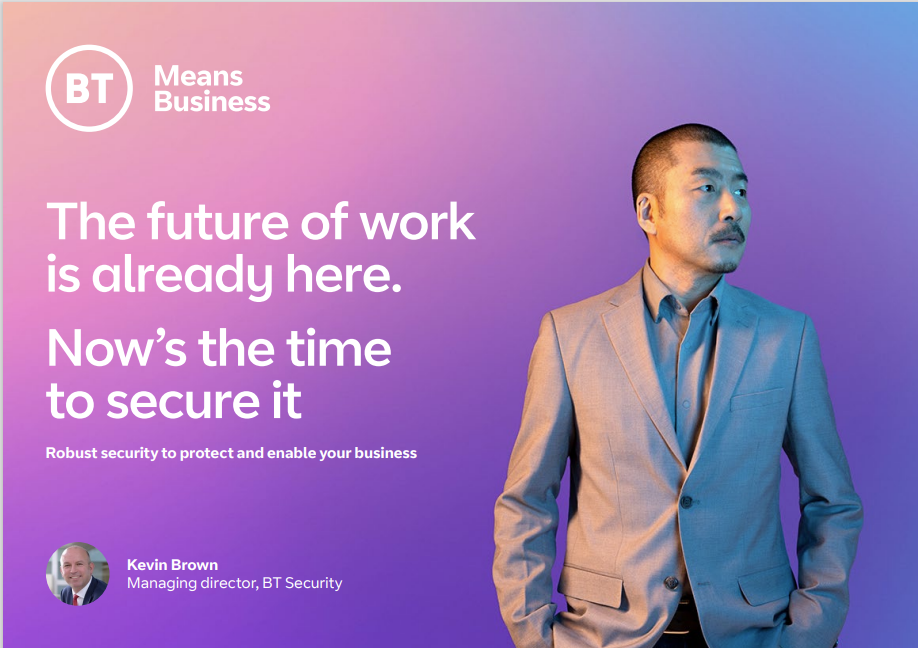Building a transformational IT dream team
With the tech industry constantly evolving, it’s important for your organisation to remain as agile and forward thinking as possible


A transformational team can be a catalyst to revolutionise the culture and working practices of the teams around it. These teams are often created, particularly within IT, to drive digital transformation projects, but they’re capable of so much more.
By bringing together diverse skill sets and different experiences, transformational ‘dream teams’ can infectiously drive innovation and creativity throughout an entire business. They challenge and strive for better, bringing to the fore different mindsets and views that can change how an organisation approaches problems or projects.
Not only that, but team members feel more empowered, which “translates into greater work happiness,” says Malgorzata Orzechowska, business development representative at SoftwareMill. Building such a unit, however, is much easier said than done, and IT leaders need to work incredibly hard to find the right staff to fit into the perfect cultural fabric.
Why are 'dream teams' important within IT?
Because the IT sector moves so fast, it’s critical that technology-based businesses and departments can adapt, says Pete Hanlon, Moneypenny chief technology office (CTO). “If companies don’t invest in change, they’ll be left behind and more agile organisations will disrupt their business. Being proactive is all about having the people, [workplace] culture and mindset within the organisation to recognise and execute opportunities to transform.”
A transformational team within any business can be a game-changer, yet in the IT sector it’s rarer than it should be, says Robert Rutherford, QuoStar CEO. He believes this is often down to many IT leaders not having the training to lead and develop, “thus creating a continual cycle of frustration and limited business outcomes”.
“With a strong set of mutual values you can build a hugely diverse team with very different characters, capabilities and interests that can make it extremely powerful, but many leaders still don’t truly hire and manage based on these,” he says.
The importance of diversity
A transformational team needs different perspectives, experiences and thought processes to make it work, which is why diversity is a very important asset.
Sign up today and you will receive a free copy of our Future Focus 2025 report - the leading guidance on AI, cybersecurity and other IT challenges as per 700+ senior executives
RELATED RESOURCE

The future of work is already here. Now’s the time to secure it.
Robust security to protect and enable your business
“Diversity of thought helps break through some of the barriers when changing long-held beliefs and ways of doing things, challenging the ‘that’s not going to work’ mentality,” explains Rhona Carmichael, Harvey Nash’s regional managing director, Scotland, UK North and Ireland.
Therefore, when putting together your team, you should be looking for a group of people from diverse backgrounds. IT leaders should also consider neurodiverse candidates, who may think and see things differently.
“It’s important that you keep an open mind, and don’t limit yourself to recruiting team members who think the same way,” highlights Steve Martin, CEO of Agilistic. “It can be an easy trap to fall into but you could miss the opportunity to recruit someone who could bring different and valuable perspectives to the team.”
Having the intent to build a diverse team is great, adds Carmichael, but organisations need to actually put in the work; change across the industry has been painfully slow. One in seven people are neurodivergent, he continues, and many have strong cognitive and technical abilities. Despite this, only roughly 16% of autistic adults are in full-time employment, because existing recruitment practices can, unknowingly, serve as barriers.
“Review your end-to-end recruitment process and implement all the recommendations,” he advises. “It’s a win-win as you’ll have greater access to high quality candidates during a time of great skills shortages and neurodiverse candidates going through the recruitment process will feel more supported.”
Finally, Martin points out you shouldn’t discount people who may not have the necessary technical experience. This is because they may be more willing to learn and adapt, and have greater diversity of experience that can enrich a team’s happiness and cultural blend.
Managers need to think outside the box
By definition, transformational teams are disruptive and need very strong leadership to be successful. “There will be times when the going gets tough, and the ‘natural immune system of the organisation status quo’ will kick in and attempt to slow down or stop changes being proposed or implemented,” says George Glass, CTO of TM Forum. “That’s where the grit, determination, leadership and clear messaging needs to be amplified.”
A transformational team leader will drive innovation and inspire thinking out of the box, promoting the team’s creativity to react to changes. Polina Poliakova, chief marketing officer (CMO) at AIISTARSIT, says this attitude is built on four principles of transformational leadership:
Intellectual stimulation: Encourages innovative big-picture thinking.
Idealised influence: Increases trust and respect of employees.
Individual consideration: Builds positive relationships by mentoring employees and opening hidden potential.
Inspirational motivation: Creates a special vision for the team to emulate and create their own decisions.
Sometimes, though, it can simply be hard to view things from a different perspective or identify improvement opportunities. In such cases, it might be because you’re too close to the details, or simply can’t let go of existing ways of working.
In this scenario, Moneypenny’s Hanlon recommends talking to industry peers working at different companies or by bringing in external consultants. “This can often help as they won’t have any of the organisational baggage and can often see opportunities or waste within the organisation that may be eluding you.”
Ongoing change is the new ‘business as usual’
Success is having built an IT dream team that ensures a department or business remains agile. Strong teams will continuously improve processes and operations by challenging the status quo and proactively lead change when there are clear benefits for doing so.
As Hanlon points out: “Change is the new ‘business as usual’, so encouraging and rewarding teams to own this improvement cycle will pay dividends.”
Crucially, the business benefits are proven. McKinsey reports diverse organisations achieve more engagement from employees, experience more innovation, perform better on financial returns and, on average, generate more revenue. For the benefit of your own team, it’s time to start making waves.
Keri Allan is a freelancer with 20 years of experience writing about technology and has written for publications including the Guardian, the Sunday Times, CIO, E&T and Arabian Computer News. She specialises in areas including the cloud, IoT, AI, machine learning and digital transformation.
-
 The modern workplace: Standardizing collaboration for the enterprise IT leader
The modern workplace: Standardizing collaboration for the enterprise IT leaderHow Barco ClickShare Hub is redefining the meeting room
-
 Interim CISA chief uploaded sensitive documents to a public version of ChatGPT
Interim CISA chief uploaded sensitive documents to a public version of ChatGPTNews The incident at CISA raises yet more concerns about the rise of ‘shadow AI’ and data protection risks
-
 IDC: The business value of IBM Maximo
IDC: The business value of IBM MaximoWhitepaper Integral to the transformation of asset management
-
 UK firms are pouring money into AI, but they won’t see a return on investment unless they address these key issues
UK firms are pouring money into AI, but they won’t see a return on investment unless they address these key issuesNews An SAP report projects increased AI investment, but cautions that too many organizations are taking a fragmented approach
-
 Intel makes high-level hires while factory workers are warned of layoffs
Intel makes high-level hires while factory workers are warned of layoffsNews The company is appointing four senior executives as part of efforts to refocus on engineering and customer relationships
-
 UiPath names Simon Pettit as new AVP for UK and Ireland
UiPath names Simon Pettit as new AVP for UK and IrelandNews The seasoned leader will spearhead region-specific transformation projects as UiPath looks to drive operational growth and customer engagement
-
 How to empower employees to accelerate emissions reduction
How to empower employees to accelerate emissions reductionin depth With ICT accounting for as much as 3% of global carbon emissions, the same as aviation, the industry needs to increase emissions reduction
-
 Worldwide IT spending to grow 4.3% in 2023, with no significant AI impact
Worldwide IT spending to grow 4.3% in 2023, with no significant AI impactNews Spending patterns have changed as companies take an inward focus
-
 Report: Female tech workers disproportionately affected by industry layoffs
Report: Female tech workers disproportionately affected by industry layoffsNews Layoffs continue to strike companies throughout the tech industry, with data showing females in both the UK and US are bearing the brunt of them more so than males
-
 How can small businesses cope with inflation?
How can small businesses cope with inflation?Tutorial With high inflation increasing the cost of doing business, how can small businesses weather the storm?
